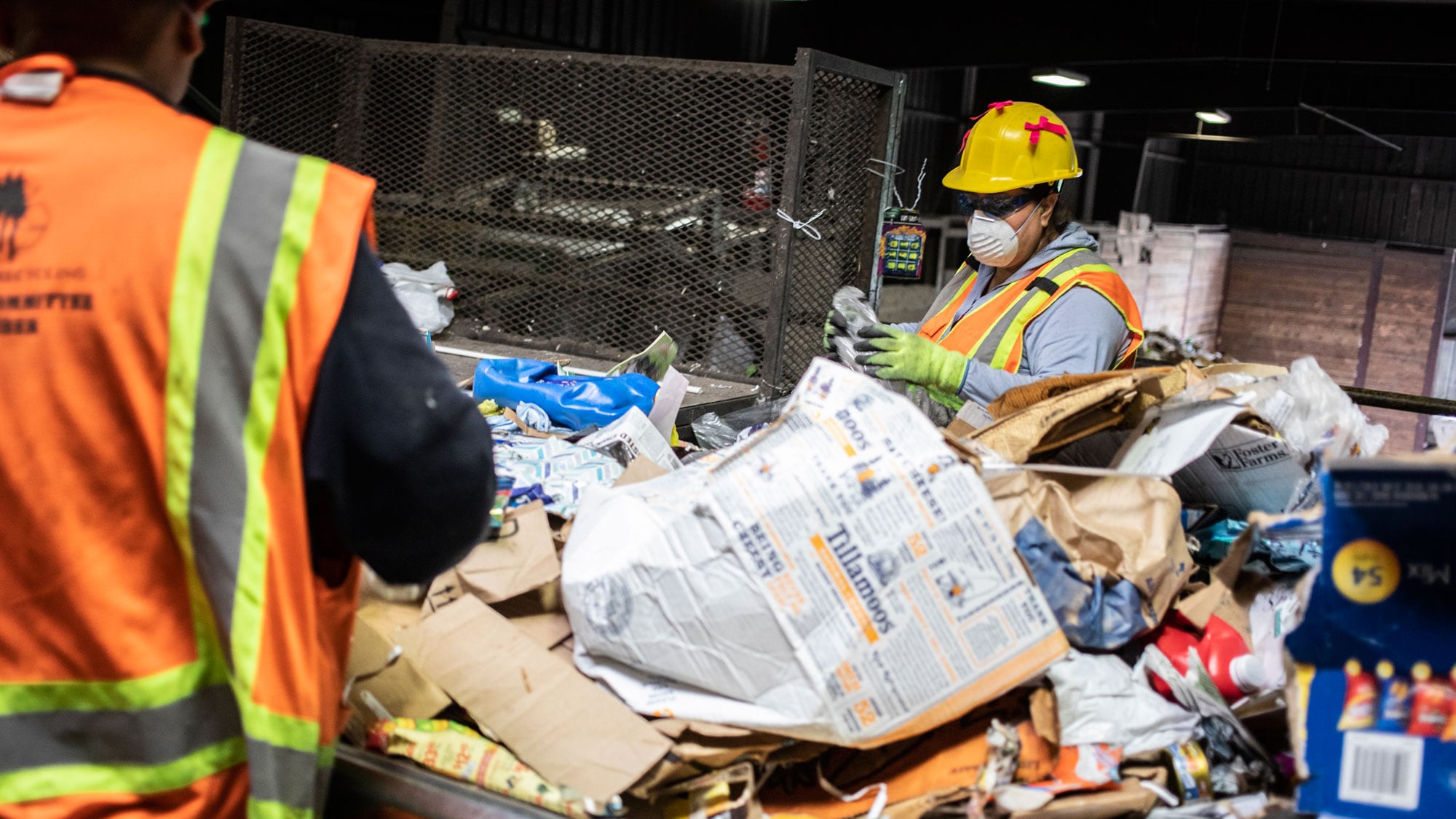Last week, WW reported on Portland State University research that found nearly all the Oregon shellfish scientists tested contained plastic particles.
This week, Environment Oregon produced a study called "The State of Recycling in Oregon," which provided a new look at how Oregonians are doing with their recycling—an area where plastics are a particular problem.
"In recent years, Oregon has been generating more waste and recycling less of it, with the exception of containers covered by the state's bottle bill," Environment Oregon reports. "In 2017, the latest year with available data, Oregon recycled 27.1% of its waste and composted 9.5%. The combined diversion rate of 36.6% is 0.4% less than the state's 2016 rate and 4.8% less than its 2014 rate."
As WW reported last year, a big part of the problem is that China has completely changed its approach to the importation of waste plastics from the west, virtually ending purchases.
Related: Recycling Is Religion in Portland. But It's in Crisis Because You're Doing It Wrong.
With China and other Asian countries less inclined to take our cast-offs, the U.S. is having to find other places to put plastics. Some plastics are getting landfilled and some are getting incinerated.
Earlier this year, Covanta, a New Jersey company that runs the state's only waste-to-energy incinerator in Brooks, sought legislation that would have declared garbage-burning a "renewable" form of energy generation and allowed the company millions of dollars a year in renewable energy credits. That bill narrowly failed after a furious battle and Salem Reporter says Covanta will try again next year.
Although the Environment Oregon report doesn't specifically mention the Covanta facility, it says that burning plastics is a poor solution.
"Many municipalities have begun incinerating their recycling streams instead, a process often termed 'waste-to-energy,'" the report says. "While touted by supporters as a 'renewable' energy source, incineration is extremely harmful to both the environment and local communities. For every metric ton of plastic burned in an incinerator, 1,980 pounds of carbon dioxide (CO2) equivalent are released—nearly 15 times more than a tonof plastic waste that is land-filled."

